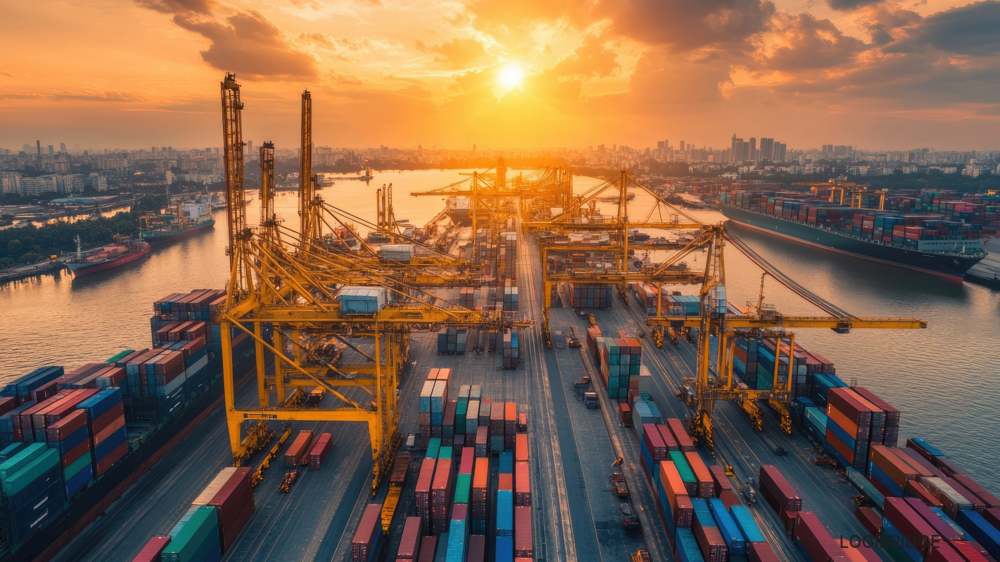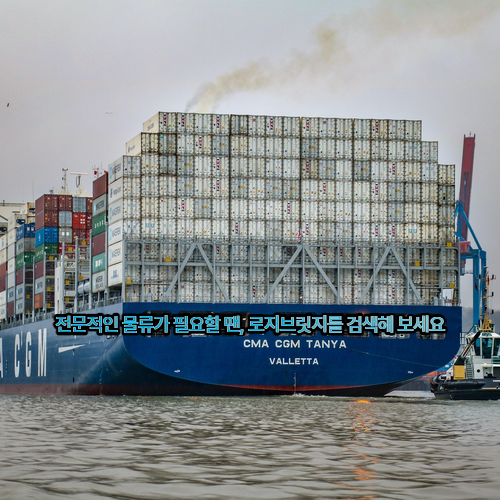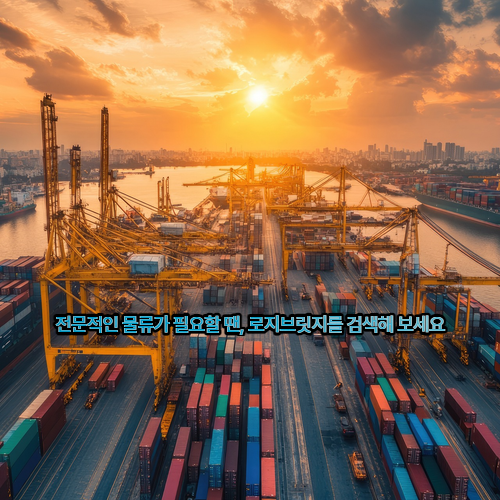

Why Korea Should Not Sell HMM: A Strategic Asset in Global Shipping
KMM, not just a name change—How Korea’s national shipping line can lead the future of marine and mobility logistics.
🙂 The World is Protecting Its Shipping Industry
Do you know how the world’s major economies are managing their shipping sectors these days? The United States strictly upholds the Jones Act, a law that protects its domestic shipping industry. China, through its state-owned carrier COSCO, is expanding its maritime dominance by securing control over key ports. Germany’s DHL, although now privatized, was once strategically managed with government ownership and is still viewed as a national asset in global logistics. According to the International Maritime Organization (IMO), over 90% of global trade is carried by sea. When supply chains are shaken and maritime transport halts, the entire economy can come to a stop. That’s why many countries treat shipping as part of their economic defense system.

😟 But Korea Tried to Sell Its National Carrier
In contrast, Korea has pursued privatization of HMM (Hyundai Merchant Marine) until recently. Firms like Harim and Germany’s Hapag-Lloyd were considered as potential buyers, with the process even reaching the due diligence stage. Although Harim has experience reviving Pan Ocean, concerns were raised about its long-term capabilities and strategic vision in managing a global shipping company. Hapag-Lloyd, the fifth-largest shipping firm in the world, clearly has competitiveness, but handing over Korea’s strategic shipping capacity to a foreign entity sparked significant controversy. Ultimately, selling HMM was not just about transferring shares—it was about restructuring a critical national logistics asset. Looking back, it may have been a blessing that the privatization fell through.
🤔 Why Shouldn't HMM Be Sold?
HMM is the only Korean carrier operating ultra-large container vessels with capacities of 24,000 TEUs—the largest in the world. These ships, introduced after 2020, play a crucial role in stabilizing Korea’s export-import logistics and are even capable of transporting strategic materials during emergencies. During the COVID-19 pandemic, when global shipping capacity was scarce, HMM, at the government's request, transported essential goods like masks and semiconductor equipment. This shows why it should be operated under a national strategic vision rather than being subject to short-term private ownership interests.
😐 Time to Change the Name?
Despite having long severed ties with the Hyundai Group, the company still goes by “Hyundai Merchant Marine.” However, the current HMM is no longer part of a private conglomerate—it plays a key role in Korea’s strategic logistics. That’s why there’s growing support for a rebranding, such as "KMM"—Korea Marine & Mobility. Like COSCO or NYK, this would reflect clear national identity. “KMM” implies more than just shipping—it points toward an integrated mobility strategy covering maritime, inland, air, and rail transport. When combined with the credibility and global recognition of the “K-brand,” Korea could gain a far stronger presence in global logistics. A new name that reflects Korea’s unique identity and is globally understandable could become a symbolic brand for Korea’s logistics strategy.

😐 Look at the Temasek Model
Some may worry about delisting. But delisting doesn’t always mean a negative outcome. For instance, ConnectWave chose to delist in 2023 and used the opportunity to restructure and gain managerial flexibility. HMM may not need to remain listed if it wants to pursue a long-term strategic path without being swayed by short-term stock movements. This kind of hybrid structure is not rare globally. Take PSA in Singapore—one of the world’s top port operators. It is jointly owned by Singapore’s sovereign funds GIC and Temasek, the latter being wholly owned by the government yet managed with a private-sector approach. Temasek’s investment portfolio spans private companies and strategic assets alike. This model shows how a government can retain ownership while allowing autonomy and accountability through market mechanisms. Similarly, Saudi Aramco maintains majority state ownership while also listing part of its shares to connect with global capital markets. A structure where the government partners with institutional investors and private players could allow strategic control without sacrificing efficiency. In HMM's case, ownership could be shared among the National Pension Service, KDB, and strategic private partners—ensuring both long-term governance and minimal shareholder disruption.
😕 Is State Ownership Inefficient? Not Necessarily
We’ve all heard the clichés—"bureaucratic appointments," "inefficiency." But with the right governance, state-owned companies can outperform their private counterparts. Overseas examples like Temasek, Equinor, and PSA prove that government ownership doesn’t have to mean inefficiency. These firms are led by professional management, assessed on performance, and guided by transparent structures. HMM, too, could implement systems like global CEO recruitment, public-private board composition, and KPI-based management—creating a “state-owned but stronger-than-private” governance model. The key lies in the structure and operation.
😮 HMM Should Be a Buyer, Not a Seller
Now is not the time to sell assets—it may be an opportunity to acquire them. DHL is expanding its healthcare logistics network by acquiring companies in Europe and the Middle East. UPS is buying firms with strong distribution and healthcare delivery capabilities in Southeast Asia and South America. CEVA Logistics, part of CMA CGM, recently acquired a major logistics firm in Turkey, evolving into a comprehensive logistics platform spanning port operations and land transport. These global players are not just defending their markets—they are proactively acquiring strategic footholds in emerging regions. According to Drewry, regions like Africa and South Asia are expected to see annual cargo growth of over 7% through 2030. Due to lacking infrastructure, they often rely on foreign logistics firms. If HMM forms joint ventures or executes small acquisitions in these markets, it can build strategic bases—just as COSCO did when expanding China’s maritime influence.
😊 Let’s Begin a New Era with KMM
It’s time to choose. Do we sell HMM and later regret losing a once-in-a-generation strategic company? Or do we transform it into “KMM” and develop it into a 100-year national asset? KMM wouldn’t just be a shipping company—it would be a comprehensive platform for mobility, national security, and brand power. Some may ask, “What’s in a name?” But names define identity, and identity shapes strategy, which ultimately determines our future position. Now is the moment to begin that transformation.
KMM, HMM, KoreaShipping, KoreanLogistics, GlobalShipping, MaritimePolicy, JonesAct, COSCO, DHL, PSA, Temasek, KoreanExport, StrategicLogistics, NationalCarrier, UltraLargeContainerShip, SupplyChainSecurity